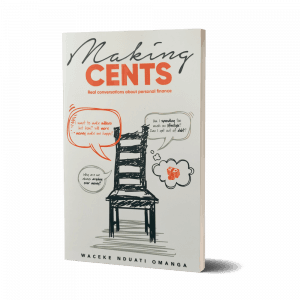Money is undeniably one of the most emotionally charged subjects and one thing we can all collectively agree on is the fact that everyone has a money story. This story is usually defined in our childhood, and we carry that story with us either consciously or subconsciously. Money plays a central role in our lives, affecting not only our financial well-being but also our emotional and mental health. It’s important to cultivate a positive relationship with money so that you can view money for what it is- a tool that helps you acquire things you need or want.
If you’re curious about the key to financial success for some individuals and why others may not achieve the same level of financial success, it ultimately comes down to one’s money mindset. The way you view money plays a large role in your overall financial well-being. Your money mindset is simply your unique set of beliefs and attitudes about money. It defines how you think about money and influences your saving habits, spending patterns, your ability to invest with confidence, and how you manage debt.
How your money mindset is formed

Your money mindset is usually established early in life and is shaped by a variety of factors most notably: your upbringing, cultural influences, personal experiences, and personal beliefs. These factors combine to create a set of attitudes and beliefs about money that guide our financial decisions. From a young age, we observe how our parents or caregivers handle money, which can significantly impact our attitudes and behaviors toward finances. If we grew up in an environment where money was talked about openly and managed responsibly, we might develop a healthy money mindset.
Conversely, if we witnessed financial struggles or scarcity, we might adopt a more negative or fearful approach to money. Reflecting on how money was managed in your childhood home can provide insight into the foundation of your money beliefs. Fortunately, regardless of your upbringing, you have the power to change and improve your money mindset through the information you engage with. It’s entirely feasible to develop new perspectives and reshape existing ones by embracing a more positive mindset, and reclaiming control over the aspects of your financial life that are within your influence to change.
Types of money mindsets
The saver/scarcity mindset
This mindset revolves around the belief that there is never enough money to go around. Individuals with a scarcity mindset often feel anxious about money even if they have a comfortable income, hoard resources, and struggle to take risks or invest in themselves. This mindset can lead to excessive frugality.
Most people with this money mindset rarely get to enjoy the money that they have because they prioritize saving and frugality above all else. They may feel uncomfortable spending money and prefer to accumulate savings as a form of security.
The abundance mindset

Contrary to the scarcity mindset, an abundance mindset is characterized by the belief that there are plenty of opportunities and resources available. People with an abundance mindset tend to approach money with optimism, viewing it as a tool for growth and abundance rather than a source of fear or limitation. They also tend to be natural givers, believing there will always be a way to make more money!
The spender mindset
Those with a spender mindset typically derive enjoyment from spending money and often prioritize immediate gratification over long-term financial objectives. They wrestle with impulse control, experiencing a rush of excitement or pleasure with each purchase, which can result in excessive spending and accumulating debt beyond their means. This type of mindset may be a coping mechanism and not necessarily an indication of an abundance mindset.
The fear of money mindset
Some individuals have an overwhelming fear or anxiety surrounding money or wealth. This often stems from negative associations with wealth, such as seeing it as corrupting or causing problems. This apprehension can result in self-sabotaging behaviors in financial affairs, ultimately leading to a lack of financial literacy and planning.
The indifferent mindset
This mindset is characterized by a disinterest or apathy towards money management and financial planning. Individuals with this mindset may not prioritize their financial situation or hold strong beliefs about it. They are less likely to track their spending or savings and may be content with their current financial situation, even if it means living paycheck to paycheck.
The fixed mindset
People with a fixed money mindset believe that their financial situation is predetermined and cannot be changed. They may feel powerless to improve their financial circumstances and may resist taking proactive steps towards financial growth.

The growth mindset
A growth money mindset is characterized by the belief that one’s financial situation can be improved through effort, learning, budgeting, and persistence. Those with this type of mindset are more likely to take risks, seek out opportunities for financial growth, and adapt to challenges. Someone with a growth mindset has a healthy relationship with money and views money as a tool to achieve their goals/ improve their life.
How to improve your money mindset & become a financial feminist

Financial feminism is all about taking back control of your finances, establishing a solid financial footing, and asserting your presence in the financial sphere to shape the life you desire now and into retirement. The goal is to attain financial independence, granting women the autonomy to make choices with the money they’ve earned.
But before you can change anything in your life, including your finances, it’s essential to pause and reflect on your past experiences so you can see how it’s influenced your present. Think about your experiences with money up until this point:
- What did the adults in your life teach you about money?
- What did you hear and see about money growing up?
- Did your parents/guardians struggle with money or did it come easily to them?
- How did you approach your own money as you entered adulthood?
- What’s one thing your parents did with their money that you would like to replicate as an adult?
- What’s one thing your parents did with their money that you would like to do differently?
- What are your current core beliefs about wealth and success?
Understanding your money mindset is the first step towards making positive changes in your financial life. Once you identify your money mindset, consider whether it serves your financial goals and well-being. If not, work on shifting your mindset by doing the following:
Challenge your limiting beliefs: Identify any negative beliefs or attitudes you have about money and challenge them. Replace scarcity mindset with an abundance mindset, and recognize that you have the power to shape your financial reality. limiting beliefs can be a major roadblock to improving your money mindset, so try your best to avoid putting yourself down.
Educate yourself: Take the time to learn about personal finance, investing, and wealth-building strategies. Knowledge is power, and by educating yourself, you can make informed financial decisions and take control of your financial future. There’s no need to understand every single topic in relentless detail, but there are plenty of educational resources out there for you to learn the basics. The Psychology of Money by Morgan Housel, The Total Money Makeover by Dave Ramsey, and Making Cents by Waceke Nduati are some great books that can help you understand money.

If you find yourself in need of further assistance in understanding finances, you can always reach out to Centonomy. They offer a diverse array of programs and courses designed to equip you with the tools and actionable steps necessary to break free from detrimental money habits and cultivate new ones that propel you swiftly toward your goals.
Practice Self-Compassion: Be kind to yourself on your financial journey. Everyone makes mistakes, and it’s okay to stumble along the way. Instead of dwelling on past setbacks, focus on what you can learn from them and how you can move forward.
Set Financial Goals and build new money habits: Building new money habits and having clearly defined financial goals both short-term and long-term can be a great way of making positive changes to your money mindset. Whether that goal is to buy a home, start a business, or grow your savings, you’ll slowly notice that making progress towards your goals helps you develop a more positive financial mindset.
Acknowledge incremental progress: Celebrate the small victories along the way. Recognize and appreciate the progress you’ve made, no matter how small. Paying off a small debt or contributing to your retirement or emergency fund are accomplishments, and they should be acknowledged Each step forward brings you closer to your financial goals and strengthens your financial independence as a woman. Small wins also indicate that your behavior is in line with your bigger goals.
By understanding and improving your money mindset, you can take control of your financial future, break free from limiting beliefs, and pave the way for greater financial success and empowerment. Remember, your relationship with money is a journey, and with patience, persistence, and a positive mindset, you can achieve your financial goals and live the life you deserve. Consider your financial well-being with the same significance as you do your self-care routine, in that it’s really important for our long-term well-being. Prioritize nurturing your financial health and advocate for other women to do the same. This commitment to financial well-being embodies the essence of financial feminism.

